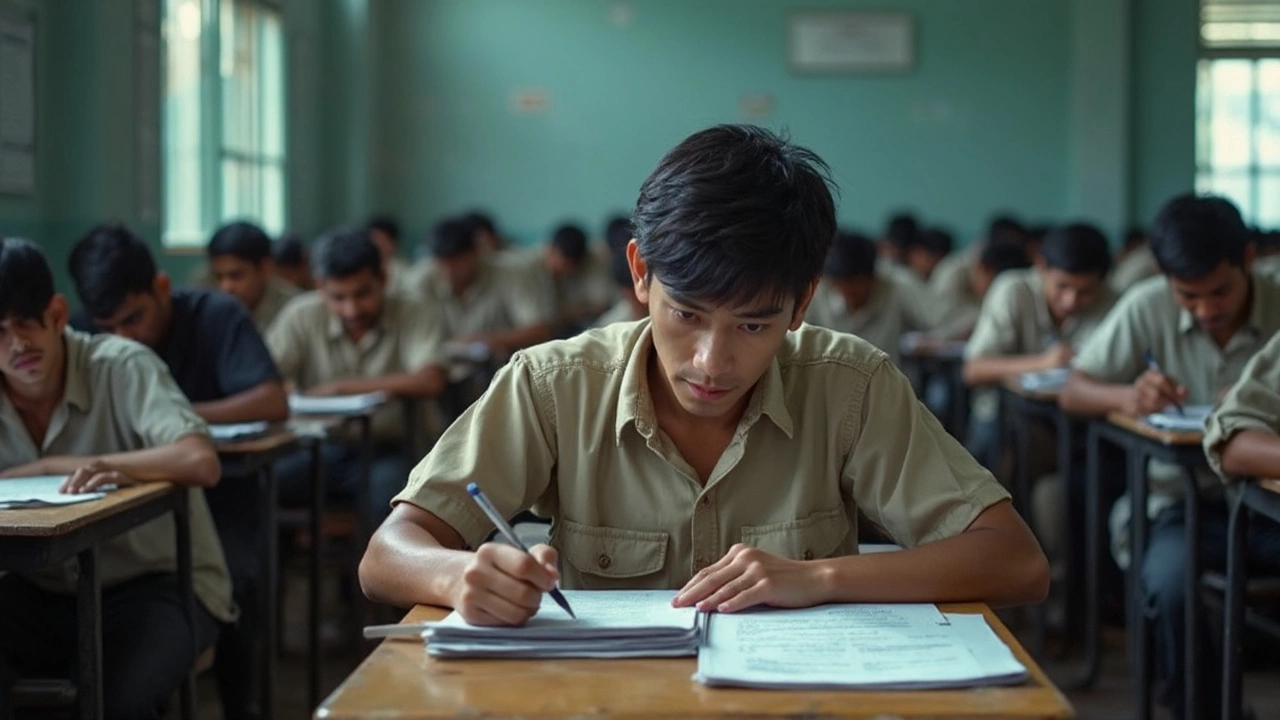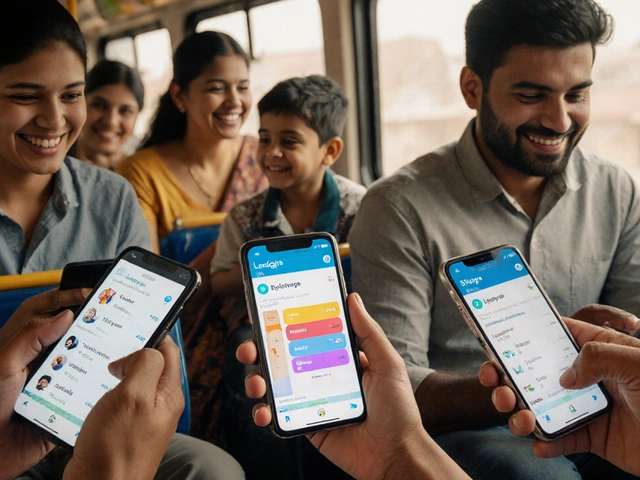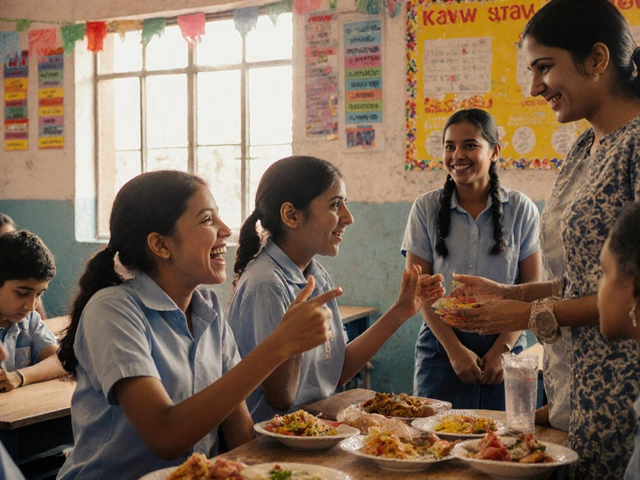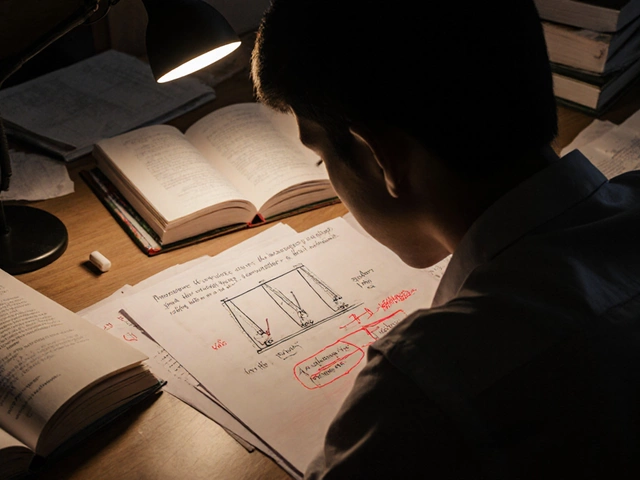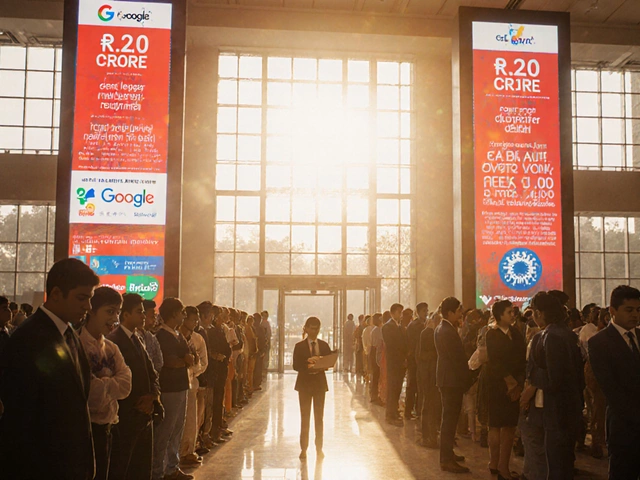The world’s toughest exams aren’t just about picking the smartest kid in the class. They push people to the edge—from sleepless nights, to wild competition, to moments where you even question why you started at all. If you think your final math exam is rough, it’s nothing compared to what some folks face just to land a job or even get into college.
Some of these exams have pass rates so low, you’d have better luck winning a mini-lottery. We’re talking about tests like the Indian UPSC, the Chinese Gaokao, and Japan’s National Center Test. The stress? Next-level. Some families even move cities just to be closer to test prep centers. Imagine all that pressure riding on a single number at the end.
If you ever wondered why these exams seem almost designed to overwhelm, you’ll find some eye-opening answers here. Plus, I’ve picked up a few tricks from friends and, honestly, from my own spectacular failures—so keep reading if you want to dodge the worst of the stress and still come out alive on exam day.
- What Makes an Exam Stressful?
- Top Contenders Around the World
- Why the Indian UPSC Almost Breaks People
- Insane Statistics: Acceptance Rates and Prep Times
- Coping Tips from Real Test Survivors
- Is the Stress Worth It? Career Payoffs and Regrets
What Makes an Exam Stressful?
It’s one thing to feel nervous before a test, but some exams crank the pressure up so high people lose sleep, health, and sometimes their sanity. What actually makes an exam so stressful though? It’s not just the questions or the subject—there’s a bigger mix at play.
First up: competition. The more people fighting for a small number of spots, the heavier the stress. Exams like the Indian UPSC or the Chinese Gaokao can have millions of applicants, but only a tiny percent get what they want.
Another big factor is the impact the exam has on your life. If your result determines your entire future—like which college you’ll attend, or if you’ll get the dream government job—there’s a ton of pressure to perform.
The structure of the exam matters, too. Long duration, tricky negative marking, and surprise questions ramp up the anxiety. Sometimes, you even get only one shot a year. Mess up, and you’re waiting another twelve months.
Family and social expectations can be huge stress multipliers. In some countries, your score isn’t your private business—it’s what everyone around you talks about. Parents, teachers, even random neighbors weigh in.
- Massive number of competitors
- Life-changing consequences
- Complex and unpredictable format
- Single yearly opportunity
- High social and family pressure
Check out just how wild these numbers are for a few famous exams:
| Exam | # Applicants (per year) | Acceptance/Pass Rate |
|---|---|---|
| UPSC (India) | ~1 million | 0.1% |
| Gaokao (China) | ~12 million | Varies by university, can be <1% |
| Bar Exam (USA, California) | ~9,000 | 30-40% |
So when people call the most stressful exam in the world, it’s not just talk—it’s backed by some seriously rough odds and real-life consequences. Next, let’s check out which exams actually top the stress charts worldwide.
Top Contenders Around the World
So, which tests actually make people sweat bullets? There's fierce debate, but a handful always show up near the top. These exams don’t just test book smarts—they flat-out test who can last the longest without snapping. Here’s a rundown on the giants that have made headlines and kept generations of students and job seekers awake at night.
- UPSC Civil Services Exam (India): Widely considered the most stressful exam globally, with only about 0.1-0.3% passing out of millions who start. Preparation can stretch over years, and the exam process itself takes nearly a year from start to finish.
- Gaokao (China): Think SATs on steroids. More than 11 million students take it yearly, competing for spots in universities. A single day's performance can seriously affect your chances in life.
- Bar Exam (USA and Japan): To become a lawyer, you need to conquer this beast. The U.S. bar is notorious, but Japan’s is even rougher with years of dedicated prepping and a pass rate that hovers around 20%.
- All Souls Prize Fellowship Exam (UK): Oxford’s All Souls exam has questions like, “Is it wrong to eat animals?” You get three hours to write something genius. The acceptance rate? Less than 1%.
- Parisian Medical Exam (France): Called the PACES, this medical school entrance is so tough it has inspired endless reform debates and some say even reforms can't kill the cutthroat competition.
If you’re someone who loves stats, here’s how these monstrous exams compare in the stress arena:
| Exam | Location | Annual Takers | Pass Rate |
|---|---|---|---|
| UPSC Civil Services | India | ~1,000,000 | 0.2% |
| Gaokao | China | ~11,000,000 | 20-25% |
| U.S. Bar Exam | USA | ~70,000 | 60-79% |
| Japan Bar Exam | Japan | ~6,000 | 20% |
| All Souls Fellowship | UK | ~100 | <1% |
| PACES Medical Exam | France | ~60,000 | 15-20% |
If you’re prepping for any of these, don’t panic—at least now you know exactly what scale of crazy you’re up against.
Why the Indian UPSC Almost Breaks People
If you’re looking for the most stressful exam anywhere, the Indian UPSC Civil Services Examination grabs the spotlight. This is not just a test; it’s a marathon that can eat up two or three years of someone’s life. Every year, around a million hopefuls apply, but less than 0.3% actually make it through all the rounds. That’s not a typo—it’s a brutal filter, all for jobs in the country’s top government positions.
What really makes the UPSC notorious is its structure. It’s not a single exam, but three stages:
- Preliminary Exam (Prelims): Objective-type questions, mostly on general studies and current affairs—cutthroat because one mistake can ruin months of work.
- Main Exam (Mains): Nine essay-based papers, including everything from history to ethics to a language paper. Miss the passing mark in any one, and you’re out.
- Interview (Personality Test): The last filter, testing how you think and react under pressure instead of what you crammed.
The monster isn’t just the amount you have to study; it’s keeping up with breaking news, political theories, history dates, environmental issues, and even random facts. Candidates talk about studying 8-10 hours a day, often for years, just to have a shot. On top of that, there’s an age cap and a limit on attempts, so even planning when to sit for the exam gets stressful.
Mental health takes a beating. Plenty of people share stories online about anxiety, loneliness, and even strained relationships. It’s not rare to hear how UPSC stress takes over family time, hobbies, sleep, and sometimes basic self-care. For many, it’s the uncertainty that’s killing: you can do everything right—and still lose a couple of years in the blink of a failed attempt.
For those dreaming of serving in the Indian bureaucracy, there’s no other way through. The rules are set, and so is the pressure. If you’ve got friends or cousins prepping for UPSC, send them a snack, a meme, or a few good wishes—they probably need it more than they let on.
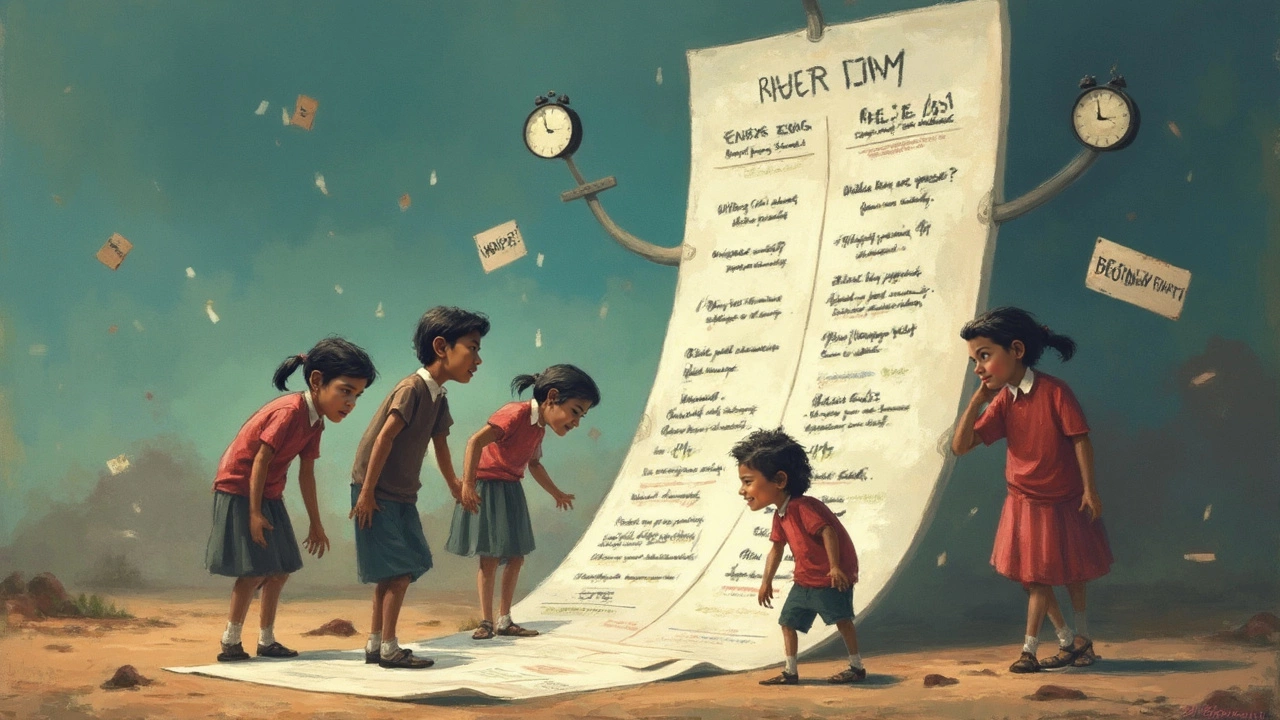
Insane Statistics: Acceptance Rates and Prep Times
If you want numbers that make your jaw drop, most stressful exam contenders never disappoint. Let’s talk pass rates, years of study, and the sheer volume of people lining up for a shot.
Take the Indian UPSC Civil Services Exam. In 2024, nearly 1.1 million people applied. Only about 13,000 made it past the first round, and by the end, less than 1,000 are actually selected as officers. That lands you with an acceptance rate under 0.1% for top roles. It’s like trying out for the Avengers and hoping the Hulk retires.
Then there's the Chinese Gaokao. In June 2023, over 12 million students sat for it—parents sometimes rent apartments near the best schools years in advance, hoping for even a slight edge. At elite colleges like Peking University, only about 0.05% of Gaokao test-takers make the cut.
Japan’s National Center Test is another beast. While the overall acceptance odds aren’t as brutal as Gaokao or UPSC, top Tokyo universities only pick about 1-3% of applicants. The prep starts years before—students attend 'cram schools' after normal classes, sometimes finishing at 10 p.m. just to get ahead.
Check out the numbers in this table—it gives a real sense of why these exams top the nightmare charts worldwide:
| Exam | Yearly Applicants | Acceptance Rate | Typical Prep Time |
|---|---|---|---|
| Indian UPSC CSE | 1,100,000+ | Below 0.1% | 2-3 years |
| Chinese Gaokao | 12,000,000+ | <0.2% (top schools) | 2-4 years |
| Japan National Center Test | ~500,000 | 1-3% (top unis) | 1-2 years plus cram school |
Getting into these exams isn’t just hard, it’s a long game. Most test-takers study 6-8 hours daily for a couple of years straight, sometimes even putting their social lives on the back burner. Pretty nuts, right? If you’re prepping, keep your calendar honest, and don’t try to sprint a marathon—you need that stamina.
Coping Tips from Real Test Survivors
When you're up against the most stressful exam on the planet, you need more than a stack of textbooks. Real survivors, people who actually got through monsters like the Indian UPSC or China’s Gaokao, swear by some life-saving habits. Here’s what they wish they’d known from day one:
- Stick to a schedule—but don’t cram nonstop. A Japanese student who cracked the notoriously hard Center Test told me he prepped in blocks of 45 minutes with 15-minute breaks. Pure marathon study sessions? Total burnout.
- Mock tests are worth their weight in gold. Indian UPSC toppers take full practice tests every week for months. They treat those dry runs just like the real deal—phones off, strict timing, even snacks packed like exam day.
- Sleep is not negotiable. There’s solid research showing less than 6 hours of sleep tanks your memory. Some Gaokao veterans push for naps after lunch too, even if it feels lazy.
- Tackle weakest topics first. A friend who passed the South Korean CSAT (another beastly exam) said he faced his most hated subject—math—at the start of every study block. It felt brutal, but it worked.
- Talk it out when you’re overwhelmed. Everyone hits the panic wall. Joining group chats or online forums (Reddit is king here) makes a difference. Just venting for ten minutes can reset your brain.
Want some numbers? Let’s see what actual exam survivors report about their routines and mental health strategies:
| Strategy | % of Survivors Using It | Reported Impact |
|---|---|---|
| Regular sleep (7+ hrs) | 68% | Improved memory, less anxiety |
| Weekly mock tests | 61% | Higher real exam scores |
| Peer groups/study partners | 74% | Faster problem-solving, moral support |
| Meditation/yoga | 24% | Lower stress, better focus |
| Social media breaks | 33% | Better time management |
Look, panic is normal. No one gets out of these exams without feeling swamped at least once. Pick a few tricks, test what works for your brain, and remember that even the toughest tests are just a stepping stone—not a life sentence.
Is the Stress Worth It? Career Payoffs and Regrets
So, you’ve put your life on hold for the most stressful exam out there. But what do you actually get if you survive it? The answer is—it depends, but in some cases, the payoffs are huge. Getting through stuff like the Indian UPSC or the Chinese Gaokao can totally change which doors open for you. We’re talking lifelong job security, high social status, and sometimes a sweet pay bump that can put you way above your peers.
Let’s break down real numbers. For UPSC in India, successful candidates join the elite civil services, with starting monthly salaries ranging from $600 to $1,150 USD, plus perks—free housing, cars, medical, travel, and the kind of status that gets your relatives bragging for years. In China, acing the Gaokao gets you a shot at top universities like Tsinghua or Peking. That may lead to tech jobs or government gigs with salaries that increase by 40-50% over what average grads get.
| Exam | Success Rate | Starting Salary (USD/month) | Perks |
|---|---|---|---|
| UPSC (India) | 0.2% | 600-1,150 | Housing, car, job security |
| Gaokao (China – top 2%) | 2% | Variable | Elite university access |
| JEE Advanced (India) | 2% | Varies | IIT college admission |
| Bar Exam (USA) | 63% | 4,000-12,000 | Lawyer status |
But here’s the honest truth: it’s not all sunshine. Lots of folks who pass say they lost years to prepping, and for every winner, thousands get left behind feeling burned out. People who don’t make the cut can spend years picking up the pieces, and sometimes regret missing out on life outside of books. There’s even a name for it in China—"Gaokao shadow." Some kids get stuck for years, retaking these nerve-wracking tests again and again.
Still, tons of people swear the grind was worth it. Secure jobs, a shot at big career jumps, being set for life—it can feel like hitting the jackpot after months or years of stress. It’s a gamble: do you take your shot and risk the burnout, or do you look for a different path? If you’re gunning for one of these exams, talk to people who’ve been through it. Ask them what they enjoyed, and what they’d do differently—you'll get much better advice than just staring at stats.
